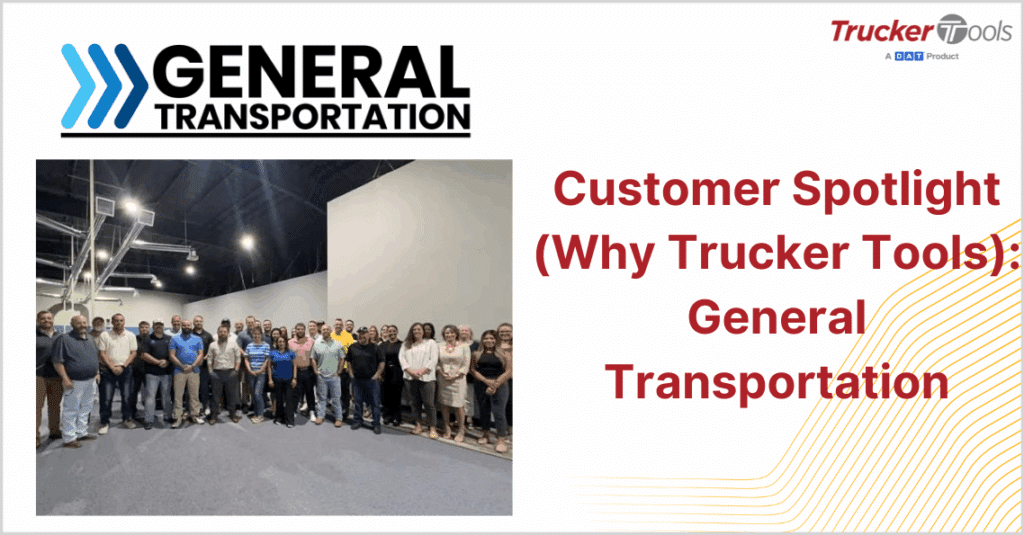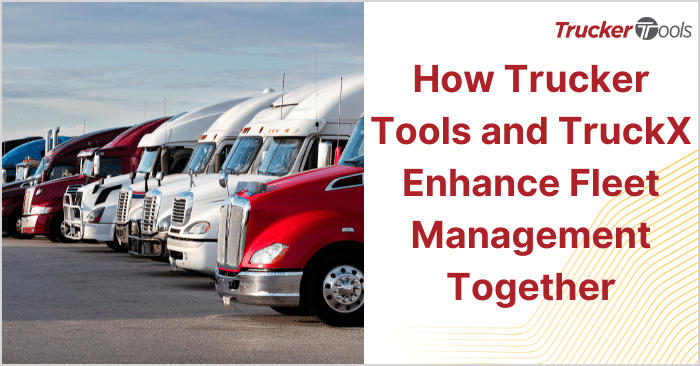Choosing technology for your freight brokerage or logistics company often is one of the biggest decisions you make as a business owner. The right technology-based solution and tech partner can transform your business, helping you increase your profit margins and equipping you with the tools you need to remain competitive today and in the future. Asking the right questions of any potential technology partner can ensure that you get a high return on your technology investment, gain operational efficiency, do more with your current team, and have the power to scale your business without investing in additional technology or adding to your head count.
Check out these seven questions that you should be asking any prospective technology partner!
1. Does It Integrate With My TMS?
“When looking at technology in general, I’m obviously going to look at who else is using a solution and how and why they’re using it,” said Syfan Logistics’ IT Director Diana Bullington. “I want to know how others in the industry view the vendor and their tools. It’s important to know about the ease of implementation and how the solution and our TMS can be integrated. I don’t want a provider who can’t integrate their solution with our current TMS. I want to know how that TMS vendor views the technology provider that I’m considering. It’s all about your relationships. Those are big things as an IT director that I look at. I want an honest answer and I’m going to look for honest answers from those other customers.”
2. Is the Carrier Component Easy To Use?
“You do have to offer additional load booking options for carriers,” said Ryder Freight Brokerage’s V.P. and G.M. Dave Belter in a recent interview. “You have to be willing to do business in the manner that is easiest for them. Being agile and flexible is extremely important. We’re really focused on making it easy for our customers to do business and for our carriers taking all of the friction out of business processes so that our people can focus on solving real problems. Our focus is on automating the administrative business processes around administrating loads, smarter load matching, load tracking, and making that whole payment cycle quick and easy for our carriers.”

3. Does the Tech Integrate with Carriers’ ELDs?
“If I put myself in the shoes of an owner operator, I would set my company up on ELD platforms instead of trying to rely on drivers downloading apps,” said Ryan Transportation’s Senior VP of Operations Jeff Henderson in a webinar with Trucker Tools. “It really takes the guesswork out of tracking and it’s just fantastic. The way that Trucker Tools has signed up so many carriers to track with ELDs has made it so much easier for our folks. The drivers and dispatchers can be so much more effective when they’re not getting calls for updates from us as brokers, looking for their whereabouts. Therefore they can spend more time looking for and responding to that next great load and that best paying load.”
4. Does the Tech Vendor Continually Improve the Technology?
“I remember meeting Prasad, Trucker Tools’ Founder and CEO, at a McLeod User Conference maybe four years ago,” said Kirsch Logistics’ C.R.O. Jeremy Becker. “We felt that Trucker Tools was doing a lot of fantastic things and that the company was pushing the envelope on things that we needed. We felt like Trucker Tools was and is working to enhance its software altogether. We made the decision to use both Trucker Tools’ load tracking and MacroPoint for tracking and tracing purely because some drivers and dispatchers like one or the other. Giving them the ability to choose helped tremendously in the beginning. To this day, we still give our dispatchers the ability to use both.”
5. Does the Tech Vendor Have a Road Map for the Future?
“One of the things that we really wanted to develop at Kingsgate was our vendor partnerships,” said Kingsgate Logistics’ Senior VP of Strategy and Innovation Tom Curee. “We wanted to find key contributors that we felt like fit really well with the culture of our organization and who were going to be viable going forward. I think a lot of people get caught up on what technology does today and they’re just buying what they see today. We went into that process buying not only what we were going to get today, but what we saw coming for the next three to five years with those vendors. That allowed us to build a core network of vendors. These are the players that are going to allow us to meet our strategic goals and work well with our team.”

6. Does the Technology Make Your Team Members’ Lives Easier?
“As we’re moving through this journey, we see more and more demand for technology from our customers and our carriers, but the first piece of it for me is really how it helps our people,” shared C.L. Services’ President and CEO Jeff Lantz. “We want technology to make our employees’ lives easier because there’s nothing that I hate worse than seeing somebody sitting here working until 8 p.m. at night when I’m walking out the door. There’s a lot of really cool technology coming down the pike that we know is going to make their lives even that much easier. The whole goal for our company, our people and our culture is to make this job as much fun as possible — and it can be very fun. I look at technology as a huge stress reliever for our people. Once you get them on board with it and they understand it, they’re not as stressed out. Then they will do a much better job of servicing our customers and servicing our carriers.”
7. Which Carriers Already Use the Technology?
“Trucker Tools had enough functionality built into the platform that we didn’t need to recreate the wheel,” says BlueGrace Logistics’ Chief Operating Officer Mark Ford. “What really made us comfortable with going with Trucker Tools was when we basically said, ‘Hey, here’s the list of companies that we use most frequently’ and the Trucker Tools team could tell us which carriers were already on their platform. It was a lot easier and it’s something that you can actually show a customer that they get super excited about. You have to focus on finding the right technology partners that you can integrate with and getting value out of that integration.”
Find out how to “Optimize and Improve Your Capacity Searches with Trucker Tools.”
Schedule a free demo of Trucker Tools’ Smart Capacity.






